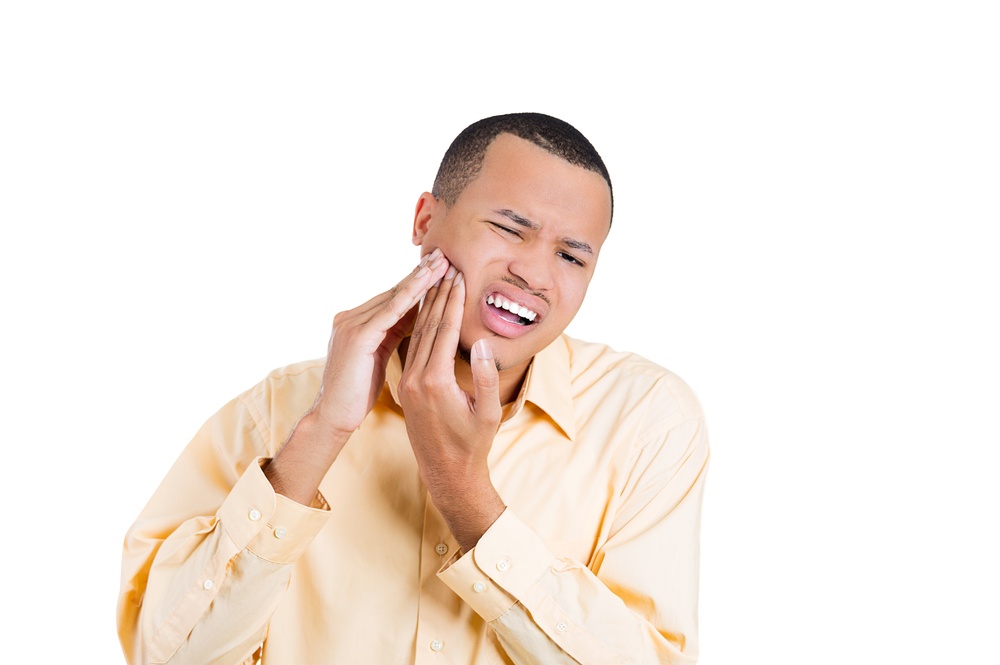
We may have all experienced jaw pain at one point or another. This is usually caused by a problem with the temporomandibular joint (TMJ), or the joint connecting your jawbone to your skull. There is one joint on each side, and either one of them could cause pain or problems at any given time for a number of reasons.
There are multiple ways to treat TMJ, depending on the cause of the pain.
Lifestyle changes
One of the first ways to begin treating the source of your TMJ is to become aware of any habits that may be making the pain worse. Many of us tend to clench our jaws or grind our teeth in stressful situations. Other bad habits, such as chewing on everyday items like pens or pencils, can also contribute to jaw pain.
If you’re experiencing jaw pain more frequently, it may be a good time to actively avoid overusing your jaw muscles. Cutting your food into smaller bites, eating softer foods, and limiting gum chewing can all be helpful ways to decrease your TMJ pain. There are a few other things you can do to improve your overall oral health and better protect yourself from jaw pain:
- Avoid biting your nails
- Limit large jaw movements, such as yawning
- Use a soft-bristle toothbrush (even those who do not experience jaw pain would benefit from this)
- Floss regularly
- Use antiseptic mouth rinse daily
Home remedies
There are several home remedies for easing TMJ pain. Applying hot and cold compresses can help to alleviate your pain. Along with this, ask your dentist to prescribe some stretches or self-massages for your sore jaw. It can also be helpful to avoid leaning or sleeping on the side of your jaw experiencing pain. Home remedies can certainly be attempted before seeking medical treatment, as the source of your TMJ pain may be something simple, such as chewing too much gum.
Alternative medicine
There are several alternative medicine treatments that have been shown to be effective in managing TMJ. One such treatment is acupuncture, the process of having a trained professional insert thin needles in various areas of your skin. Other treatments include biofeedback, which is a method of pain relief that helps patients learn to control involuntary body processes (such as jaw clenching), and massage therapy. Always seek treatment from professional practitioners.
Medical treatments
Additionally, there are many different medical treatments used to address TMJ complications:
- Oral splints or mouth guards - these devices can help the wearer avoid clenching or grinding their teeth
- Counseling - helps the patient understand potential triggers and reasons for aggravating behaviors, which may help them quit said behaviors
- Arthrocentesis - this minimally invasive procedure injects fluid into the joint, helping remove inflammation and debris
- Steroid or botox injections - may help reduce inflammation in the joint area
- Surgery - in severe cases, surgical procedures may be necessary to remove debris or inflammatory tissue from the area
There are many ways to treat the source of your TMJ pain. Ask your dentist for helpful tips to improve the health and functionality of your jaw.
And if you’ve been avoiding treatment for your jaw pain, based on cost, you may want to consider a dental discount program, which can offer significant discounts on exams and treatments for TMJ and other dental issues.

